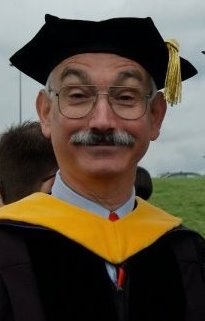
On teaching
Good teaching is about inviting students to stick out their necks and venture a contribution, then correcting them in a way that does not discourage them. I think my personality is well suited to that. I am fundamentally contrarian. I can disagree in the most cheery voice.
When I took chemistry, it was 90% applied math. I was good at math, so I flourished. Then in the 1980s, chemistry educators realized that students who were clever at algebra could succeed in chemistry classes without understanding the underlying concepts. I changed the way I taught. My General Chemistry course is still about 50% math, but the lectures I am most proud of are about concepts.
On grades
Grading is a game we play. My objective is to get you to learn chemistry. Your objective is to get a good grade; if that means finding a shortcut that bypasses learning, all the better. To succeed, I must be better at gaming the system than you are. So I have devised tricks over the years that force you to learn stuff if you want to get a good grade. I'm a very sneaky person.
Dr. Robert Richman
On concepts
On advising
My job is not to tell students what to do. Nor is it to create clones of myself. It's to present options, to give the best argument for each, and then to let the student decide. Encouraging students to be their best is fine, but pushing them to be like us crosses the line.
On humor
Students love humor. It lightens up the atmosphere and makes teachers more approachable. Even bad puns are a big hit. But humor cannot be forced. Students love distinctive personalities, and your sense of humor must be a natural extension of your personality. Puns are not my style; wit is.
On General Chemistry
In the chemical industry, a distinction is made between specialty chemicals and commodity chemicals. I would make a similar distinction in describing college courses. If you take a course called “Gender roles in Jane Austen novels,” you expect something unique, something specially crafted to reflect the professor’s research interest and passion. The professor creates the course free of external expectations and constraints, allowing imagination free rein. Nobody teaches General Chemistry like this. There are well-defined universal expectations about what this course must cover. It is a commodity. No wonder so many Chemistry Departments find General Chemistry to be dull and want to replace it as the introductory course in the major. I hope that my videos will demonstrate my passion for chemistry, my attempt to make Gen Chem a specialty course.
Thanks to all the students who made my career so memorable.
On the intellectual foundation of chemistry
The periodic table does not simply catalog the elements, it organizes them. The horizontal progression is by number of protons in the nucleus, but what of the peculiar vertical relationships? Who would surmise that 4, 12, 20, 38, 56, and 88 go together? Chemistry is a story of laws (generalizations of experiments) and the theories that explain them by postulating what happens on a scale of atoms and molecules. Conservation of mass is explained by Dalton’s atomic theory, gas laws by kinetic molecular theory, rate laws by mechanisms, thermodynamics by statistical mechanics, climate change by the greenhouse effect. But the greatest intellectual achievements of chemistry may be what the Periodic Table embodies: the Periodic Law, describing common properties of elements in the same column, and its explanation by common numbers of valence electrons, determined by the theory of quantum mechanics.